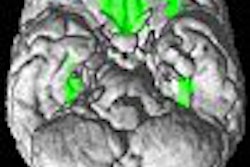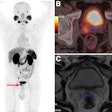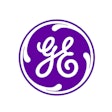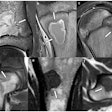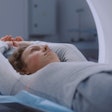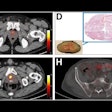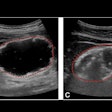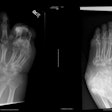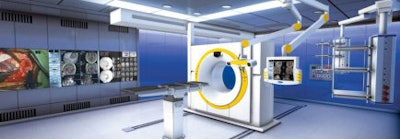
U.S. facilities are about to get their first look at a novel concept in intraoperative CT, thanks to a partnership between image-guided therapy firm BrainLab of Munich, Germany, and Siemens Medical Solutions of Malvern, PA. The companies have developed an intraoperative CT package based on a rail-mounted scanner that slides into position for use during surgical procedures.
Siemens and BrainLab are bringing the system to the U.S. after two years of development in Germany. Called BrainSuite iCT, the configuration integrates Siemens' Miyabi CT scanner with BrainLab's computer-aided surgery equipment, such as the company's VectorVision sky navigation software technology, radiolucent operating table, and other ancillary devices.
The CT scanner glides over floor rails to the patient when surgeons need to perform a scan during the procedure. After the images are taken, the CT slides back to its original position, and the images from the intraoperative scan are automatically registered to the BrainLab software. Those images also can be fused with scans from other modalities, such as PET.
"The system is adapted for direct intraoperative imaging, so you don't have to physically move a patient away from the operating suite," said Dr. Praveen Nadkarni, business manager for Siemens' CT division. The scanner also can be used as a standalone system for conventional CT imaging when not in use in support of intraoperative applications.
|
Siemens Medical Solutions' and BrainLab's intraoperative CT system uses floor rails to move the scanner to the patient and then return it to its original position after images are acquired. Video courtesy of Siemens Medical Solutions. Having trouble viewing this clip? Click here to view full size clip or to change format. |
The table also adjusts for various patient positions, while the CT has a gantry bore of 28 inches. Patient images and data from the surgical suite's monitoring equipment are displayed on one large wall for all in the operating theater to see.
Siemens offers four-, 24-, 40-, and 64-slice CT configurations for BrainSuite iCT, Nadkarni added.
Multiple applications
BrainSuite iCT's clinical applications are focused in three main areas: cranial, spinal, and trauma. In cranial cases, the system is conducive to stereotactic procedures, tumor resection, vascular surgery, and craniomaxillofacial surgery. In spinal applications, pedicle screw and implant placement, tumor resection, vertebroplasty, and spinal traumatology are primary uses. In trauma cases, hip, pelvic, and acetabulum fractures, as well as CT-based endoprosthetics, are most applicable.
Maxillofacial applications are among the procedures currently performed at Munich's Grosshadern Hospital, which utilizes a 40-slice Siemens CT system.
Siemens and BrainLab expect the applications for BrainSuite iCT to expand, fueled, in part, by CT's advance to greater numbers of imaging slices. One area to be explored is cardiology. "That is a brand-new market we feel is completely untapped, because no one is doing any intraoperative cardiac work," said Peter Carino, BrainLab's national sales manager for North America.
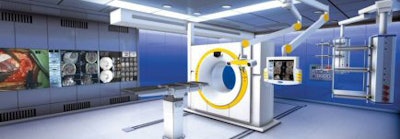 |
| A suite view of the Siemens Medical Solutions' and BrainLab's intraoperative CT system. Image courtesy of BrainLab. |
U.S. installation
Development of the intraoperative CT system began about two years ago. Today, the companies have two installations in Germany: Grosshadern Hospital at the University of Munich and Erlangen University Hospital.
BrainLab and Siemens brought the intraoperative CT system to the U.S. in late 2006, and received the first order in December from Carondelet Health Network's St. Joseph's Hospital in Tucson, AZ. BrainLab has about 25 other active intraoperative CT projects in the works right now, Carino said.
St. Joseph's plans are to go live with the new operating suite in January 2008. BrainLab can generally build a surgical suite and install the intraoperative CT system in less than six months, according to Carino. Currently, however, St. Joseph's is building three new operating rooms, and BrainLab will not have access to the space until June or July. There are no irregular siting requirements for the intraoperative CT system, the company said.
The cost of the CT scanner itself will range from $300,000 to $1.6 million, depending on whether it is an eight- or 64-slice system. BrainLab's technology adds between $1.7 million to $3 million to the price tag, depending on the configuration. Carino estimates construction and other siting requirements would add less than $500,000 to the total investment.
The total investment is approximately half the financial outlay for an intraoperative MRI system, Carino noted.
Among BrainLab's functions is project management -- arranging subcontractors for installation, and directing custom engineering for the integration of diverse technologies with other hospital systems, such as a PACS, HIS, or RIS.
"From a hospital administration standpoint, they can generate additional revenue by using this modality for more than just a neurosurgical application," Carino said. "You also are talking about marketing your hospital as a facility that has the latest in leading-edge technology."
Siemens provides the CT scanner, while BrainLab contributes the microscope, navigation software, anesthesia and monitoring equipment, and room control technology. BrainLab also provides all the clinical software to integrate the equipment, such as taking DICOM data from the CT and bringing it and other patient information into the BrainSuite iCT.
By Wayne Forrest
AuntMinnie.com staff writer
March 20, 2007
Related Reading
BrainLab wins patent victory, February 8, 2007
BrainLab unveils neuro package, November 30, 2006
BrainLab adds support for CereTom, November 6, 2006
Siemens launches biomarker research facility, February 8, 2007
Accuray teams up with Siemens, November 7, 2006
Copyright © 2007 AuntMinnie.com





